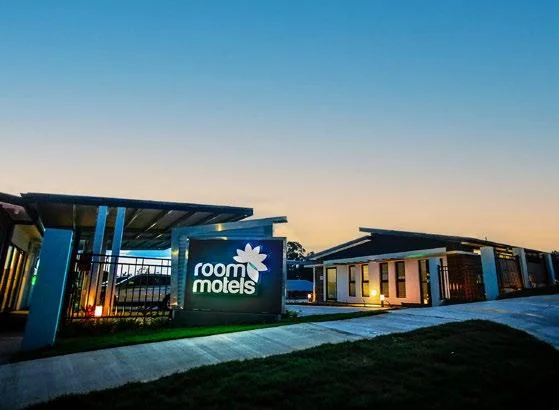
Understanding and Preventing Parasitic Motel Malaise: A Comprehensive Guide
Traveling often conjures images of adventure and freedom, but not every experience is as glamorous as it appears. For many travelers, the excitement of staying in budget motels can quickly diminish due to an issue that’s becoming increasingly common: parasitic motel malaise. This term encompasses the discomfort and health risks linked to infestations in budget motels, such as bedbugs, mites, and other unwanted pests. In this article, we’ll delve into the hidden infestations that can affect certain Parasited Motel Malaise, their impact on guests’ health, and provide crucial advice on how to avoid these unpleasant situations.
The Rise of Parasited Motel Malaise
Recently, motels have seen a troubling rise in infestation reports, with bedbugs becoming a particularly well-known issue. These tiny, blood-sucking pests can invade even the most carefully maintained motels, posing a significant challenge for operators and leading to uncomfortable experiences for guests. The resurgence of bedbugs is attributed to several factors, including increased travel and the pests’ growing resistance to traditional pesticides. This ongoing problem complicates efforts for Parasited Motel Malaise to maintain a pristine reputation.
However, bedbugs are not the only pests affecting motel rooms. Dust mites, fleas, and lice also contribute to discomfort in some motels. Dust mites, which thrive in bedding, carpets, and upholstered furniture, often go unnoticed but can cause significant health issues, especially for those with allergies or respiratory problems. Fleas, typically associated with pets, may infest motel rooms if previous guests traveled with animals. Lice, although less common, can be spread through shared bedding or towels, adding another layer of potential inconvenience for guests.
To effectively combat these issues, Parasited Motel Malaise operators need to implement proactive measures and strict cleanliness protocols. This involves regular inspections, prompt treatment for any infestations, and upholding high hygiene standards to provide a comfortable and safe environment for all guests.
The Impact on Guests
Encountering a parasite infestation in a Parasited Motel Malaise room can have significant repercussions for guests on multiple levels. Physically, the presence of pests like bedbugs, fleas, or lice often leads to unpleasant symptoms such as itching, redness, and swelling. In more severe cases, frequent scratching can result in allergic reactions or secondary infections, impacting overall comfort and hindering restful sleep.
Beyond the physical discomfort, the psychological effects of finding parasites can be quite substantial. Guests may experience increased anxiety, stress, and disrupted sleep upon discovering that their accommodation is infested. This unsettling realization can foster a lasting sense of unease and raise serious concerns about the cleanliness and safety of future stays.
Root Causes of Parasited Motel Malaise
Common Contributors
Several factors contribute to parasited motel malaise:
Poor Cleaning Practices: Inadequate cleaning routines can lead to the build-up of dirt and grime, which creates a favorable environment for parasites to flourish.
Insufficient Regular Inspections: Routine inspections are essential for detecting early signs of infestations. Without regular checks, parasites can proliferate and become a serious issue before being noticed.
Frequent Guest Changes: Motels with high turnover rates may struggle to maintain consistent cleanliness, increasing the likelihood of pest problems.
Neglected Repairs and Maintenance: Unaddressed issues such as cracks in walls, damaged furniture, and general disrepair can offer hiding places for pests, making infestations more likely.
Identifying Parasite Issues in Motels
Physical Signs of Infestation
Skin Reactions: Guests might notice red, itchy welts on their skin, which could be caused by bites from bedbugs or fleas. These welts often serve as an early sign of a parasitic issue.
Blood Stains: Small blood stains on bedding or upholstery can be indicative of a bedbug infestation. These stains result from the insects feeding on human blood.
Explore the Latest Developments: snapsourcenet
Fecal Marks: Black or brown spots on mattresses and furniture are often bedbug feces. The presence of these marks suggests that bedbugs are residing in the area.
Eggs and Shed Skins: Finding tiny eggs or shed skins in cracks and hidden spaces confirms an ongoing infestation. These remnants indicate the various stages of pests like bedbugs.
Guest Feedback and Complaints
Guest Feedback: Reports from guests experiencing bites, itching, or general discomfort frequently signal the presence of parasites. Negative reviews and comments often stress the necessity for prompt action to address these concerns and enhance the overall guest experience. It is essential for Parasited Motel Malaise to quickly address and resolve such issues to uphold their reputation and ensure guest satisfaction.
Health Implications of Parasite Infestations
Physical Health Concerns
Skin Irritations: Infestations by bedbugs, fleas, and lice can cause significant skin issues. Bites from these pests often lead to severe itching and irritation, which can result in inflammation of the skin.
Allergic Reactions: Some individuals might experience allergic responses to the bites or the excretions of these parasites. Reactions can vary from mild skin rashes to more severe systemic issues.
Secondary Infections: Excessive scratching of bites increases the risk of secondary infections. If bites are not treated and kept clean, they can become infected, leading to further health complications.
Psychological Health Effects
Increased Stress and Anxiety: Discovering parasites in a motel room can lead to heightened levels of stress and anxiety for guests. This psychological impact can significantly diminish their overall experience and affect their view of the Parasited Motel Malaise.
Disrupted Sleep: Infestations can severely impact sleep quality. The discomfort and anxiety associated with pests often result in frequent disruptions and insufficient rest, ultimately affecting guests’ overall health and well-being.
Effects on Motel Operations
Financial Repercussions

Revenue Impact: The presence of pests can significantly affect a motel’s financial health. Negative guest experiences and unfavorable reviews may lead to a sharp decline in bookings, which in turn can result in decreased revenue.
Cost of Pest Management: Managing and eradicating infestations can be costly. Motel operators often face substantial expenses for professional pest control services, along with necessary repairs and deep cleaning, which can put additional strain on their financial resources.
Damage to Reputation
Damage to Reputation: An infestation can seriously harm a Parasited Motel Malaise reputation. Negative exposure from such problems can discourage potential guests and undermine the confidence of current patrons, creating difficulties in attracting new customers and maintaining business growth.
Legal Risks
Risk of Legal Action: Motel owners may face legal challenges if guests suffer health issues due to parasitic infestations. Such situations can lead to lawsuits and compensation claims, further complicating the financial and operational aspects of running the business.
The Role of Motel Owners in Preventing Infestations
While travelers can take steps to safeguard themselves, the responsibility for preventing and managing pest issues primarily falls on Parasited Motel Malaise owners. To ensure a pest-free environment, motel operators should conduct frequent inspections, adhere to stringent cleaning practices, and promptly address any guest complaints. Engaging professional pest control services and using protective covers for mattresses and pillows are crucial strategies for preventing infestations.
Maintaining a clean and hygienic facility, combined with proactive issue resolution, is essential for protecting the motel’s reputation and enhancing guest satisfaction. Furthermore, ongoing staff training on effective pest control and cleanliness procedures can greatly improve the implementation of these preventive measures.
FAQ
Q1: What is parasitic motel malaise?
A1: Parasitic motel malaise refers to the discomfort and health risks associated with pest infestations in motels, such as bedbugs, dust mites, fleas, and lice. These infestations can lead to various physical and psychological issues for guests.
Q2: What are common signs of pest infestations in motels?
A2: Common signs include bite marks on the skin, blood stains on bedding, black or brown fecal spots on mattresses, and the presence of tiny eggs or molted skins. Guests may also report itching or discomfort.
Q3: How do infestations affect guests physically and psychologically?
A3: Physically, pests can cause skin irritations, allergic reactions, and secondary infections. Psychologically, guests may experience increased anxiety, stress, and disrupted sleep due to the presence of pests.
Q4: What factors contribute to pest infestations in motels?
A4: Key factors include inadequate sanitation, lack of regular inspections, high guest turnover, and neglected maintenance issues like cracks in walls or damaged furniture.
Q5: What are the financial impacts of infestations on motels?
A5: Infestations can lead to a decline in revenue due to negative guest reviews and decreased reservations. Additional costs include pest control services, repairs, and potential legal issues from health complaints.
Q6: How can motel owners prevent and manage pest infestations?
A6: Motel owners should conduct regular inspections, maintain rigorous cleaning protocols, address guest complaints promptly, and invest in professional pest control. Using protective encasements for mattresses and pillows and training staff on pest control practices are also effective measures.
Conclusion
Ensuring a comfortable and pest-free experience for guests is crucial for any motel. The rise of parasitic infestations, such as bedbugs and dust mites, highlights the importance of maintaining rigorous cleanliness and proactive management practices. Motel owners must implement regular inspections, thorough cleaning, and professional pest control to safeguard their reputation and guest satisfaction. By addressing these issues effectively and training staff appropriately, motels can minimize the risk of infestations and create a more pleasant environment for all visitors.
Don’t miss out on updates and alerts – stay connected! Mumbaibreaking

